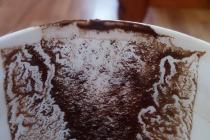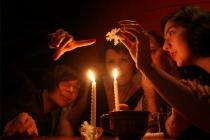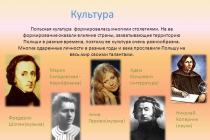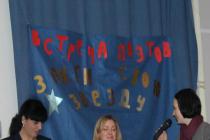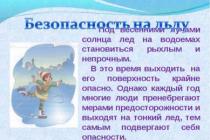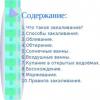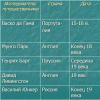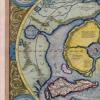On September 7, 1923, a long-awaited boy was born into an intelligent Armenian family, who was named Edward. Little Edik spent his entire childhood in the small Turkmen town of Merv. But the family idyll did not last long: when the boy was barely 6 years old, his father died suddenly. The mother had no choice but to return to her native Sverdlovsk with her son.
Here Edik went to school, and at the age of 8 he wrote his first poem. Later, he began to attend a local theater group, where a great future was predicted for the talented and versatile boy.
Later, Edik and his mother moved to the capital, where he continued his studies. In his senior year, he could not decide on the choice of university, torn between the desire to become an actor and a poet.
However, fate itself made the choice for him. Before the emotions from the prom had even faded, the whole country was shocked by terrible news - war. Yesterday's graduate immediately reported to the military registration and enlistment office and volunteered to go to the front.
At war
After completing a month's training, young Asadov ended up in a rifle unit as a gunner. Possessing courage and determination, he was able to rise to the rank of guards mortar battalion commander.
Despite the terrifying reality, Edward continued to write. He read his poems to soldiers who were in desperate need of simple human emotions. Like his colleagues, the young battalion commander dreamed of a new life in peacetime and made bold plans for the future.
However, all dreams were destroyed during the battle near Sevastopol in 1944. During one of the attacks, all of Asadov’s fellow soldiers died, and he decided to load the car with ammunition and try to break through the cordon. Under heavy mortar fire, he miraculously managed to carry out his plan, but on the way he received a serious wound to the head, incompatible with life.
After numerous difficult operations, Asadov learned a terrible verdict - he would remain blind for the rest of his life. For the young man it was a real tragedy. The poet was saved from deep depression by fans of his work: as it turned out, Asadov’s poems were well known outside his unit.
Creative path
After the end of the war, the young man continued his literary activity. At first, he wrote his works “for the soul,” not daring to take them to the editor.
In Asadov’s short biography, there was a case when he dared to send several poems to Korney Chukovsky, whom he considered a great specialist in the field of poetry. The famous writer at first mercilessly criticized the poems sent, but in the end he summed it up by writing that Asadov is a true poet.
After this letter, Edward literally “spread his wings”: he easily entered the Literary Institute in Moscow, and after graduating in 1951, he published his first collection, “The Bright Road.”
Eduard Arkadyevich was very lucky: during his lifetime, his work was appreciated not only by the masters of literature, but also by the general public. Throughout his life, Asadov received bags of letters from all over the Soviet Union with words of gratitude for his sensitive and heartfelt poems.
Personal life
Eduard Arkadyevich was married twice. The first marriage to artist Irina Viktorova did not last long.
The second attempt to start a family was more successful. Galina Razumovskaya became a reliable support and support for the poet, having lived with him for 36 years. The couple had no children.
Death
Eduard Arkadyevich Asadov is an outstanding Russian poet and prose writer, a hero of the Soviet Union, a man amazing in fortitude and courage, who lost his sight in his youth, but found the strength to live and create for people.
Eduard Asadov was born in September 1923, in the city of Merv, Turkestan Autonomous Soviet Socialist Republic, into a family of intelligent Armenians. His father, Artashes Grigoryevich Asadyants (later changed his first and last name and became Arkady Grigorievich Asadov), participated in the revolutionary movement, was imprisoned for his beliefs, after which he joined the Bolsheviks. Subsequently he served as an investigator, commissar and commander of a rifle company. After retiring, Arkady Grigorievich married the mother of the future poet, Lydia Ivanovna Kurdova, and exchanged military shoulder straps for the peaceful status of a school teacher.
Little Edik's young years passed in the cozy atmosphere of a small Turkmen town, with its dusty streets, noisy bazaars and endless blue sky. However, the happiness and family idyll were short-lived. When the boy was only six years old, his father tragically died. At the time of his death, Arkady Grigorievich was about thirty, and he died, unharmed by bandit bullets and the hard times of the Civil War, from intestinal obstruction.
Edward's mother, left alone with the child, could not stand the situation, which reminded her of her late husband. In 1929, Lidia Ivanovna collected her simple belongings and, together with her son, moved to Sverdlovsk, where her father, Ivan Kalustovich, lived. It was in Sverdlovsk that Edik first went to school, and at the age of eight he wrote his first poems, and there he began attending a theater club. Everyone predicted a brilliant future for the boy, he was so talented, ardent, and versatile.
 Little Eduard Asadov with his parents
Little Eduard Asadov with his parents Once he tasted the delights of the lines flowing from his pen, Asadov could no longer stop. The boy wrote poems about everything he saw, felt, loved. Edik’s mother was able to instill in her son not only a love of literature, theater, and creativity, but also a kind of admiration for true feelings, sincerity, devotion, and passion.
Biographers of Eduard Asadov claim that the reverence felt by the poet for real, genuine love was transmitted to the poet at the genetic level. His father and mother fell in love and got married, regardless of nationality and other conventions. However, then, in the Soviet Union, this did not surprise anyone. All the more typical is the example associated with the story of Edward’s great-grandmother. She came from a good noble family living in St. Petersburg, but fell in love with an English lord, with whom she linked her fate, contrary to public opinion and the will of her parents.

After Sverdlovsk, the Asadovs moved to Moscow, where Lidia Ivanovna continued to work as a school teacher. Edward was delighted. He was fascinated by the large and noisy city; the capital won the heart of the young man with its scale, architecture, and bustle. He wrote about literally everything, as if absorbing in advance the impressions of what he saw and trying to record them on paper. These were poems about love, life, girls as beautiful as spring flowers, about cheerful people and dreams coming true.
After graduating from school, Eduard Asadov planned to enter a university, but he still could not choose a direction, hesitating between literary and theater institutes. His school's graduation ceremony was June 14, 1941. The young man hoped that he would still have a few days to think before submitting the documents. But fate decreed otherwise. The war broke the lives of millions of Soviet people, and the young poet could not escape his destiny. However, he didn’t even try: on the very first day of the war, Assadov showed up at the military registration and enlistment office and signed up as a volunteer for the front.
At war
Eduard was assigned to the crew of the gun, which later became known throughout the world as the legendary Katyusha. The poet fought near Moscow and Leningrad, on the Volkhov, North Caucasus, and Leningrad fronts. The young soldier showed remarkable bravery and courage, and went from a gunner to a guards mortar battalion commander.
In between battles and shelling, the poet continued to write. He composed and immediately read poems to the soldiers about war, love, hope, sadness, and his colleagues asked for more. In one of his works, Asadov describes such a moment. Critics of the poet’s work repeatedly condemned him for idealizing the life of soldiers; they did not realize that even in dirt, blood and pain a person can dream of love, dream of peaceful pictures, remember his family, children, his beloved girl.
Once again, the life and hopes of the young poet were dashed by the war. In 1944, on the outskirts of Sevastopol, the battery where Assad served was defeated, and all his fellow soldiers died. In such a situation, Edward made a heroic decision that left him practically no chance of survival. He loaded the remaining ammunition into an old truck and began to break through to a nearby battle line, where the shells were vital. He managed to bring the car under mortar fire and incessant shelling, but on the way he received a terrible wound to the head from a shell fragment.
This was followed by endless hospitals and doctors throwing up their hands. Despite Asadov undergoing twelve operations, the traumatic brain injury he received was so serious that no one hoped that the hero would survive. However, Edward survived. He survived, but lost his sight forever. This fact plunged the poet into deep depression; he did not understand how and why he should live now, who needs a blind and helpless young man.

According to Asadov himself, it was the love of women that saved him. It turned out that his poems were widely known outside his military unit, they were distributed in lists, and these handwritten pieces of paper were read by people, girls, women, men and old people. It was in the hospital that the poet found out that he was famous and had many fans. The girls regularly visited their idol, and at least six of them were ready to marry the poet-hero.
Assadov could not resist one of them. It was Irina Viktorova, a children's theater artist, and she became the poet's first wife. Unfortunately, this marriage did not last; the love that Ira seemed to feel for Edward turned out to be an infatuation, and the couple soon separated.
Creation
At the end of the war, Eduard Asadov continued his activities as a poet and prose writer. At first, he wrote poetry “on the table”, not daring to publish. One day, a poet sent several poems to whom he considered a professional in poetry. Chukovsky at first criticized Asadov’s works to smithereens, but at the end of the letter he unexpectedly summed it up, writing that Eduard is a true poet with “genuine poetic breath.”

After such a “blessing,” Asadov perked up. He entered the capital's Literary University, which he successfully graduated in 1951. In the same year, the first of his collections, “The Bright Road,” was published. This was followed by membership in the CPSU and the Writers' Union, the long-awaited recognition of the general public and the world community.
In the post-war years, Eduard Asadov participated in numerous literary evenings, read poetry from the stage, signed autographs, and spoke, telling people about his life and destiny. He was loved and respected, millions read his poems, Asadov received letters from all over the Union: this is how his work resonated in the souls of people, touching the most hidden strings and the deepest feelings.
Among the most famous poems of the poet, the following should be noted:
- “I can really wait for you”;
- “How many of those”;
- "While we are alive";
- “Poems about a red mongrel”;
- "Satan";
- "Coward" and others.
In 1998, Eduard Asadov was awarded the title of Hero of the Soviet Union.
The poet, beloved by millions of ordinary Soviet people, died in 2004, in Odintsovo, near Moscow.
Personal life
Asadov met his second wife, Galina Razumovskaya, at one of the concerts at the Moscow State University Palace of Culture. She was an artist at the Mosconcert and asked to be allowed to perform first because she was afraid of being late for the plane. Galina became a faithful companion, last love, muse and the eyes of a poet.

She accompanied him to all meetings, evenings, concerts, supporting him morally and physically. For his sake, his wife, at the age of 60, learned to drive a car, so that it would be easier for Eduard Arkadyevich to move around the city. This couple lived in a happy marriage for 36 years, until Galina’s death.
Eduard Asadov today
More than one generation of people has grown up with the poems of Eduard Asadov; it is not surprising that he is still loved, remembered and read by his works. The writer and poet passed away, but left behind a gigantic cultural heritage. Asadov is the author of almost fifty books and collections of poems. He published in magazines, wrote not only poetry, but also poems, essays, short stories, and novellas.

The works of Eduard Asadov in the 60s of the last century were published in copies of hundreds of thousands, but interest in his books did not fade away even with the collapse of the USSR. The writer continued to collaborate with various publishing houses, and today, in 2016 and 2017, his collections are being republished and sold out. Several audio books with the poet’s poems have been published, and many works, essays, and dissertations have been written about his work and life. The poet’s poems live in the hearts of people even after his death, which means he himself is alive.
Quotes
Let you not be the reason
That spat and harsh words.
Rise above the quarrel, be a man!
It's still your love.
See the beauty in the ugly,
See the river floods in the streams!
Who knows how to be happy in everyday life,
He really is a happy man!
To love is first of all to give.
To love means your feelings are like a river,
Splash with spring generosity
To the delight of a loved one.
How easy it is to offend someone!
He took and threw out a phrase angrier than pepper...
And then sometimes a century is not enough,
To return an offended heart...
Is a bird born good or bad?
She is destined to fly.
This is not good for a person.
It's not enough to be born a human,
They still need to become.
Men, be alarmed!
Well, who doesn’t know that a woman with a tender soul
Sometimes a hundred thousand sins will be forgiven!
But it doesn’t forgive NEGLIGENCE...
There are so many people you can go to bed with...
This is how this gimmick winds its way -
They meet easily, they part without pain
This is because there are many people with whom you can go to bed.
All because there are few people with whom you want to wake up...
Bibliography
- "Snowy Evening" (1956);
- “The Soldiers Returned from the War” (1957);
- “In the name of great love” (1962);
- “In the name of great love” (1963);
- "I Love Forever" (1965);
- "Be Happy, Dreamers" (1966);
- "Island of Romance" (1969);
- "Kindness" (1972);
- "Winds of Restless Years" (1975);
- Canes Venatici (1976);
- "Years of Courage and Love" (1978);
- "Compass of Happiness" (1979);
- “In the Name of Conscience” (1980);
- "High Debt" (1986);
- “Fates and Hearts” (1990);
- "Lightnings of War" (1995);
- “Don't give up, people” (1997);
- “You don’t have to give away your loved ones” (2000);
- “The Road to a Winged Tomorrow” (2004);
- “When Poems Smile” (2004);
Childhood and family of Eduard Asadov
In a family of teachers in the town of Mary (until 1937 - Merv) a boy was born, who was named Edward. These were difficult years of the civil war. His father was one of many who fought. In 1929, his father died, and his mother and six-year-old Edward went to live with their relatives in Sverdlovsk. The boy went to school there, was a pioneer, and in high school became a Komsomol member. He wrote his first poems at the age of eight.In 1938, my mother, who was a teacher from God, was invited to work in the capital. Edward studied his last classes at a Moscow school, which he graduated from in 1941. He was faced with a choice of where to go to study - to a literary institute or to a theater institute. But all plans were disrupted by the outbreak of war.
Eduard Asadov during the war
Edward, by his nature, never stood aside, so the very next day, among the Komsomol members, he volunteered to fight. First, he underwent a month's training, and then ended up in a rifle unit with a special weapon, which later became known as the Katyusha. The young man was a gunner.Being purposeful and courageous, during the battle, when the commander was killed, without hesitation, he took command, while continuing to aim the gun. During the war, Assadov continued to write poetry and read them to his fellow soldiers when there was a time of calm.
How did Eduard Asadov go blind?
In 1943, Eduard was already a lieutenant and ended up on the Ukrainian Front, after a while he became a battalion commander. The battle near Sevastopol, which took place in May 1944, became fatal for Edward. His battery was completely destroyed during the battle, but a supply of ammunition remained. Desperate and brave Asadov decided to take this ammunition by car to a neighboring unit. We had to drive through open and heavily shelled terrain. Edward's action could be called reckless, however, thanks to the courage of the young man and the supply of ammunition, a turning point in the battle became possible. But for Asadov this act became fatal.A shell that exploded near the car mortally wounded him, and part of his skull was blown off by a shrapnel. As doctors later said, he should have died a few minutes after being wounded. The wounded Asadov managed to deliver ammunition and only then lost consciousness for a long time.
Eduard Asadov - I will be able to love you
Eduard had to change hospitals many times, he underwent several operations, and in the end he ended up in a Moscow hospital. There he heard the final verdict; the doctors told him that he would never see Edward again. It was a tragedy for a purposeful and full-of-life young man.
As the poet later recalled, at that time he did not want to live, he did not see a goal. But time passed, he continued to write and decided to live in the name of love and the poems that he wrote for people.
Poems by Eduard Asadov after the war
Edward began to write a lot. These were poems about life, about love, about animals, about nature and about war. Asadov became a student at the literary institute in 1946, from which he was able to graduate with honors. Two years later, one of the issues of Ogonyok was published with the poems of the young poet printed. Eduard Arkadyevich recalled this day as one of his happiest.In 1951, the poet published his first collection of poems. He was becoming famous. By this time, Asadov was already a member of the Writers' Union. His popularity grew, and along with this, the number of letters he received from readers also grew.
Eduard Asadov. Hurtful love.
Having become popular, Asadov often participated in meetings with the author and literary evenings. Popularity did not affect the character of the writer; he always remained a modest person. Published books were bought up by readers almost instantly. Almost everyone knew him.
Asadov drew inspiration for his further work from letters from his readers and notes that he received during literary meetings. The human stories told in them formed the basis of his new works.
Eduard Arkadyevich published about sixty collections of poetry. The writer has always had a keen sense of justice. In his poems one can feel the truth of life and the uniqueness of intonations.
The main theme of his work is the Motherland, courage and loyalty. Asadov was a life-affirming poet, in whose works one could feel the charge of love for life. The poems have been translated into many languages - Tatar, Ukrainian, Estonian and Armenian, etc.
Personal life of Eduard Asadov
When the poet lay wounded in the hospital after the war, girls he knew visited him. Within a year, six of them proposed marriage to Edward. This gave the young man a strong spiritual charge; he believed that he had a future. One of these six girls became the wife of the aspiring poet. However, the marriage soon broke up, the girl fell in love with someone else. 
Asadov met his second wife in 1961. She read poetry at evenings and concerts. There she became acquainted with the poet’s work and began to include his poems in the program of her performances. They started talking and soon got married. The poet’s wife was Galina Razumovskaya, who was a master of artistic expression, an artist and worked at Mosconcert. She was always present at her husband’s literary evenings and was a regular participant.
All his life after leaving the hospital, the poet wore a black bandage on his face, which covered the eye area.
Death of Asadov
In April 2004, the poet and prose writer died. He asked to bury his heart in Crimea, namely on Sapun Mountain. This is the same place where he was wounded in 1944 and lost his sight. However, after Asadov’s death, this will was not fulfilled by the relatives. He was buried in Moscow.Eduard Arkadyevich Asadov (1923-2004) - Soviet poet and writer.
Birth and family
Now in Turkmenistan there is a city of Mary, but almost 100 years ago it was called Mevr. It was in this place that on September 7, 1923, a boy appeared in the Asadov family, whom his parents named Edward.
The head of the family, the father of the future poet, Arkady Grigorievich Asadov (real name and surname Artashes Grigorievich Asadyants) was from Nagorno-Karabakh, Armenian by nationality. He graduated from the Tomsk Technological Institute, but almost never worked in his specialty. After the revolution in Altai, he was an investigator of the Gubernia Cheka. During the civil war he fought in the Caucasus with the Dashnaks, where he rose to the ranks of commissar of a rifle regiment and commander of a rifle company. The poet's mother, Lidia Ivanovna Kurdova, was a teacher. She met her future husband in Barnaul. In 1923, they left for the Turkmen city of Mevre, where both began to teach.
Eduard Asadov also had a “historical grandfather” (the poet later came up with such a nickname for him). Ivan Kalustovich Kurdov, also an Armenian by nationality, lived in Astrakhan at the end of the 19th century and worked as a secretary-scribe for N. G. Chernyshevsky. The great Russian thinker advised the young man to enter Kazan University. There Kurdov met Vladimir Ulyanov and also became a participant in the revolutionary student movement. Later, he studied at the university at the Faculty of Natural Sciences and worked as a zemstvo doctor in the Urals.
It was grandfather Ivan Kalustovich, an extraordinary and profound person, who had a strong influence on the worldview of his grandson, the future poet Eduard Asadov.

Childhood
Edward's earliest childhood memories were narrow and dusty Central Asian streets, colorful and very noisy bazaars, bright sun, orange fruits and golden sand. This all happened in Turkmenistan.
When the boy was only 6 years old, his father passed away. He left at a young age, the man was just over 30 years old. A man who survived the revolution, war, battles died of intestinal obstruction. After the tragedy, the mother could not stay with her little son in the place where her beloved husband died. They moved to their grandfather in the Urals, in the city of Sverdlovsk.
All the childhood years of the future poet passed in the Urals. In Sverdlovsk, he and his mother went to first grade: she taught, and Edik studied. When the boy was 8 years old, he composed his first poems. Here he was accepted into the Pioneers, and then into the Komsomol. He spent time at the Palace of Pioneers attending drama classes. And with the boys they went to the factory to see how people worked there. The boy was deeply touched then by the kind smiles and warmth of the workers, and the beauty of the human labor he saw.
It was the Urals that the poet always considered his favorite place on the planet, the country of his childhood, and dedicated poems to it: “Poem about the first tenderness,” “Forest River,” “Rendezvous with Childhood.”
Mom was an excellent teacher, and in 1938 she was invited to work in Moscow. She and Edik moved to the capital of the USSR. After the calm Sverdlovsk, Moscow immediately seemed huge, hurried and very noisy. Here the young man plunged headlong into poetry, clubs and debates.

When the time came to graduate from school, he was confused - which institute to choose, literary or theatrical. But the war decided everything for the guy.
War
On June 14, 1941, the graduation ceremony took place at the Moscow school where Eduard studied. And a week later the war began. He could not help but hear the call: “Komsomol members to the front!” And instead of applying for admission to the institute, the young man came to the district Komsomol committee with another piece of paper, where he stated his request to take him to the front as a volunteer. In the evening he was at the district committee, and the next morning he was already riding in a military train.
First, he was sent to Moscow, where the formation of the first units of the famous Guards mortars was underway. Then he ended up near Leningrad, where he served as a gunner of the wonderful and formidable weapon of the Katyusha mortar. Then, with the rank of officer, he commanded a battery of the 4th Ukrainian and North Caucasian fronts. He fought well, dreamed of victory every minute, and in the rare intervals between hostilities he wrote poetry.

At the end of the spring of 1944, Eduard was seriously wounded in a battle near Sevastopol. He was driving a truck with ammunition, a shell exploded nearby, a shrapnel hit him in the face, almost half of his skull was crushed. Only God knows how, with such a wound, the young man managed to drive the car to his destination.
Then followed a series of hospitals and operations. For twenty-six days doctors fought for the young life. When consciousness returned to him for a moment, he dictated a couple of words to write to his mother. Then he fell into unconsciousness again. They saved his life, but they could not save his eyes. Asadov remained blind and wore a black half-mask on his face until the end of his life. For this feat, the poet was awarded the Order of the Red Star.
Creation
While still in the hospitals after being wounded, Eduard Asadov again wrote poetry. It was poetry that became for him the goal for which the young man decided to live in spite of all deaths, after the terrible verdict of the doctors that he would never see the light of the sun again.

He wrote about people and animals, about peace and war, about love and kindness, about nature and life.
In 1946, Eduard became a student at the Literary Institute, which he graduated in 1951 and received a diploma with honors. While studying at the institute, a competition was announced among students for the best poem, Asadov took part and became the winner.
On May 1, 1948, the magazine “Ogonyok” was published, in which Asadov’s poems were published for the first time. It was a holiday, happy people were walking past to demonstrate, but probably no one felt greater happiness than Edward on that day.
In 1951, his first book of poems entitled “Bright Roads” was published. After this, Eduard Asadov became a member of the USSR Writers' Union. He began to travel around the Soviet Union, to big cities, small villages, meeting with his readers and talking. Much of these conversations were later reflected in his poems.

His popularity grew, and readers flooded the poet with letters, people wrote about their problems and joys, and he drew ideas for new poems from their lines. Fame did not in any way affect Asadov’s character; he remained a modest and kind person until the end of his life. Most of all in life he believed in goodness.
His collections of poems were published in circulations of 100 thousand and were instantly sold out from bookstore shelves.
In total, about 60 collections of his poetry and prose were published. It’s impossible to name the best poems of the poet Eduard Asadov, because they all touch the soul so much, penetrate so deeply into the consciousness that sometimes they change people’s outlook on life. No wonder they say: “Read Asadov’s poems, and you will see the world and life in a completely different way”.
To look at the world differently and start living for real, just read the following poems by Eduard Arkadyevich:
- “When I encounter bad things in people”;
- “I can really wait for you”;
- “Never get used to love.”
Asadov also has prose works: the story “Front-Line Spring”, the stories “Scout Sasha” and “Lightnings of War”. Eduard Arkadyevich was also involved in translations of Uzbek, Kalmyk, Bashkir, Kazakh and Georgian poets into Russian.
Personal life
The first time the poet married a girl he met in the hospital. It was the artist of the Central Children's Theater Irina Viktorovna, but family life did not go well, and they soon separated.
He met his second wife at the Palace of Culture, where he was supposed to read his poems with other poets. Mosconcert artist and master of artistic expression Galina Valentinovna Razumovskaya performed with them at the concert. They talked a little and joked. And then he read his poems from the stage, and she listened backstage. Then she came up and asked permission to read his poems at her concerts. Edward didn’t mind; the artists had not yet read his poems from the stage.
This is how their acquaintance began, which grew into a strong friendship. And then the strongest feeling came - love, the only one that people sometimes wait for a very long time. This happened in 1961, they were both about 40 years old.

For 36 years they were together both at home and at work. We traveled with programs all over the country, she helped him conduct creative meetings with readers. Galina became for the poet not only a wife and friend, she was for him a faithful heart, a reliable hand and a shoulder on which he could lean at any moment. In 1997, Galina died suddenly, within half an hour, from a heart attack. Eduard Arkadyevich survived his wife by 7 years.
Death of poet
Death overtook the poet in Odintsovo on April 21, 2004. He was buried at the Kuntsevo cemetery in Moscow. He left a will in which he asked to bury his heart in Sevastopol on Sapun Mountain, where he was seriously wounded, lost his sight, but remained alive. On Sapun Mountain there is a museum “Defense and Liberation of Sevastopol”, which has a stand dedicated to Eduard Asadov. Museum workers say that the poet’s will was not fulfilled; his relatives opposed it.
His poems were never included in the school literature curriculum, but thousands of Soviet people knew them by heart. Because all of Eduard Arkadyevich’s poetry was sincere and pure. Each of his lines found a response in the soul of a person who had read Asadov’s poems at least once. After all, he wrote about the most important things in human life - Motherland, love, devotion, tenderness, friendship. His poetry did not become a literary classic, it became a folk classic.
He was born at the height of the NEP, heard the last school bell almost simultaneously with the message about the beginning of the war, three years later he became blind at the front from fragments of an artillery shell that exploded nearby, and lived the remaining 60 years of his life in complete darkness. At the same time, he became a spiritual light for millions of Soviet boys and girls, proving with his creativity that a person sees not with his eyes, but with his heart...
Poems about a red mongrel
Student Asadov wrote this poignant poem while studying at the Literary Institute after the war. In general, the theme of four-legged animals is one of the favorite (although not the most extensive) in the poet’s work. Very few poets in Russian poetry could write so poignantly about our lesser friends. Eduard Arkadyevich especially loved dogs, kept them in his house, and considered them his comrades and interlocutors. And most importantly, he identified them with people, and of the “purest breed.”
The owner stroked his hand
Shaggy red back:
- Goodbye, brother! Although I’m sorry, I won’t hide it,
But still I will leave you.
He threw his collar under the bench
And disappeared under the echoing canopy,
Where is the motley human anthill
Plunged into express cars.
The dog didn't howl even once.
And only behind a familiar back
Two brown eyes were watching
With almost human melancholy.
Old man at the station entrance
Said that? Left behind, poor fellow?
Eh, if you were a good breed...
But he’s just a simple mongrel!
…
The owner did not know that somewhere
Along the sleepers, exhausted,
Behind the red flickering light
The dog runs panting!
Stumbling, he rushes again,
The paws are bloody on the stones,
That the heart is ready to jump out
Out from the open mouth!
The owner did not know that the forces
Suddenly they left the body at once,
And, hitting his forehead on the railing,
The dog flew under the bridge...
The wave carried the corpse under the driftwood...
Old man! You don't know nature:
After all, maybe the body of a mongrel,
And the heart is of the purest breed!

“Poems about the Red Mutt” were read at school parties, among friends and on first dates.
Snow falls
The wound, which led Lieutenant Asadov to complete blindness, sharpened his inner life, teaching the young man to “unravel with his heart” the slightest movements of the soul - his own and those around him. What a sighted person did not notice, the poet saw clearly and clearly. And he empathized with what is called “breaking.”
The snow is falling, the snow is falling -
Thousands of whites are fleeing...
And a man is walking along the road,
And his lips tremble.
The frost under your steps crunches like salt,
A man's face is resentment and pain,
There are two black red flags in the pupils
The melancholy was thrown away.
Treason? Are dreams broken?
Is it a friend with a vile soul?
Only he knows about this
Yes, someone else.
…
And how can this be taken into account?
Some kind of etiquette there,
Is it convenient or not to approach him,
Do you know him or not?
The snow is falling, the snow is falling,
There is a patterned rustling sound on the glass.
And a man walks through a snowstorm,
And the snow seems black to him...
And if you meet him on the way,
Let the bell ring in your soul,
Rush towards him through the stream of people.
Stop it! Come!
Coward
Asadov’s poems were rarely praised by “famous” writers. In some newspapers of that era, he was criticized for his “tearfulness,” “primitive” romanticism, “exaggerated tragedy” of his themes, and even their “far-fetchedness.” While refined young people were reciting Rozhdestvensky, Yevtushenko, Akhmadullina, Brodsky, “simpler” boys and girls were sweeping collections of Asadov’s poems that were being published in hundreds of thousands of copies from bookstore shelves. And they read them by heart on dates to their lovers, swallowing tears, without being ashamed of it. How many hearts have the poet’s poems connected for the rest of their lives? I think a lot. Who is united by poetry today?..
Ball of the moon under a star lampshade
The sleeping town was illuminated.
We walked, laughing, along the gloomy embankment
Guy with a athletic figure
And the girl is a fragile stalk.
Apparently, heated up from the conversation,
The guy, by the way, said,
Like once in a storm for the sake of an argument
He swam across the sea bay,
How I fought the devilish current,
How the thunderstorm threw lightning.
And she looked with admiration
In bold, hot eyes...
…
And when, having passed the strip of light,
We entered into the shadow of the slumbering acacia trees,
Two broad-shouldered dark silhouettes
They suddenly grew out of the ground.
The first one muttered hoarsely: “Stop, chickens!”
The path is closed, and no nails!
Rings, earrings, watches, coins -
Everything you have is on the barrel, and live!
And the second, blowing smoke into his mustache,
I watched how, with excitement, brown,
Guy with a athletic figure
He began to hastily unfasten his watch.
And, apparently pleased with the success,
The red-haired man chuckled: “Hey, goat!”
Why are you pouting?! - And he takes it with a laugh.
He pulled it over the girl's eyes.
The girl tore off her beret
And with the words: - Scum! Damn fascist! -
It was as if the child had been burned by fire.
…
And she looked firmly into the eyes.
He was confused: - Okay... quieter, thunder... -
And the second one mumbled: - Well, to hell with them! -
And the figures disappeared around the corner.
Lunar disk, on the milky road
Having got out, he walked diagonally
And he looked thoughtfully and sternly
From top to bottom on a sleeping town,
Where without words along the gloomy embankment
They walked, barely audible rustling of the gravel,
Guy with a athletic figure
And the girl is a weak nature,
"Coward" and "sparrow soul".

Ballad about a friend
“I take themes for poems from life. I travel around the country a lot. I visit factories, factories, and institutes. I can't live without people. And I consider serving people as my highest task, that is, those for whom I live, breathe and work,” Eduard Arkadyevich wrote about himself. He did not make excuses in response to the nagging of his colleagues, but explained calmly and kindly. In general, respect for people was perhaps his most important quality.
When I hear about firm friendship,
About a courageous and modest heart,
I do not present a proud profile,
Not a sail of disaster in a whirlwind of a storm, -
I just see one window
In patterns of dust or frost
And the reddish puny Leshka -
The maintenance guy from the Red Rose...
Every morning before work
He ran to a friend on his floor,
He came in and jokingly saluted the pilot:
- The elevator is ready. Please breathe on the beach!..
He will carry his friend out, sit him down in the park,
Playfully wraps you up warmer,
He will pull the pigeons out of the cage:
- That's it! If anything, send a “courier”!
…
Sweat pours... The railings slide like snakes...
On the third one, stand for a little while, resting.
- Alyoshka, stop it!
- Sit, don’t strain!.. -
And again the steps are like boundaries:
And so not just a day or a month,
So years and years: not three, not five,
I only have ten. And after how long?!
Friendship, as you can see, knows no boundaries,
The heels still click stubbornly.
Steps, steps, steps, steps...
One is the second, one is the second...
Oh, if suddenly a fairy hand
I would add them all at once,
This staircase is for sure
The top would go beyond the clouds,
Almost invisible to the eye.
And there, in the cosmic heights
(Imagine just a little)
On par with satellite tracks
I would stand with a friend on my back
Nice guy Alyoshka!
Let them not give him flowers
And let them not write about him in the newspaper,
Yes, he doesn’t expect grateful words,
He's just ready to help,
If you feel bad in the world...

The poet “saw” the themes for his poems in life, and did not invent them, as some believed...
Miniatures
There are probably no topics to which Eduard Asadov would not devote a miniature - capacious, sometimes caustic, but always surprisingly accurate. There are several hundred of them in the poet’s creative baggage. In the 80s and 90s, people quoted many of them, sometimes without even knowing who their author was. If you had asked then, the “people” would have answered. Most of the quatrains (rarely octagons) are written as if for our life today.
President and ministers! You bet your life
On knees. After all, the prices are literally crazy!
You should at least leave the prices on the ropes,
So that people can hang themselves!

He willingly inserted teeth for clients.
However, at the same time he “exposed” them like that.
That those, having grown thin with their bellies,
For six months my teeth were chattering.
Enough chatting about the people, gentlemen,
And, puffing out your belly, talk about the nationality!
After all, after Peter, after years of years,
Have always ruled our people
Various foreign things...
And as a message to us today:
Be kind, don't be angry, have patience. Asadov, Edward Arkadievich - Wikipedia
The poet died on April 21, 2004 at the age of 82. Eduard Arkadyevich was buried at the Kuntsevo cemetery next to his mother and beloved wife, whom he outlived by only seven years.
The poet bequeathed his heart to be buried on Sapun Mountain near Sevostopol, where a shell explosion on May 4, 1944 forever deprived him of his sight and radically changed his life...


